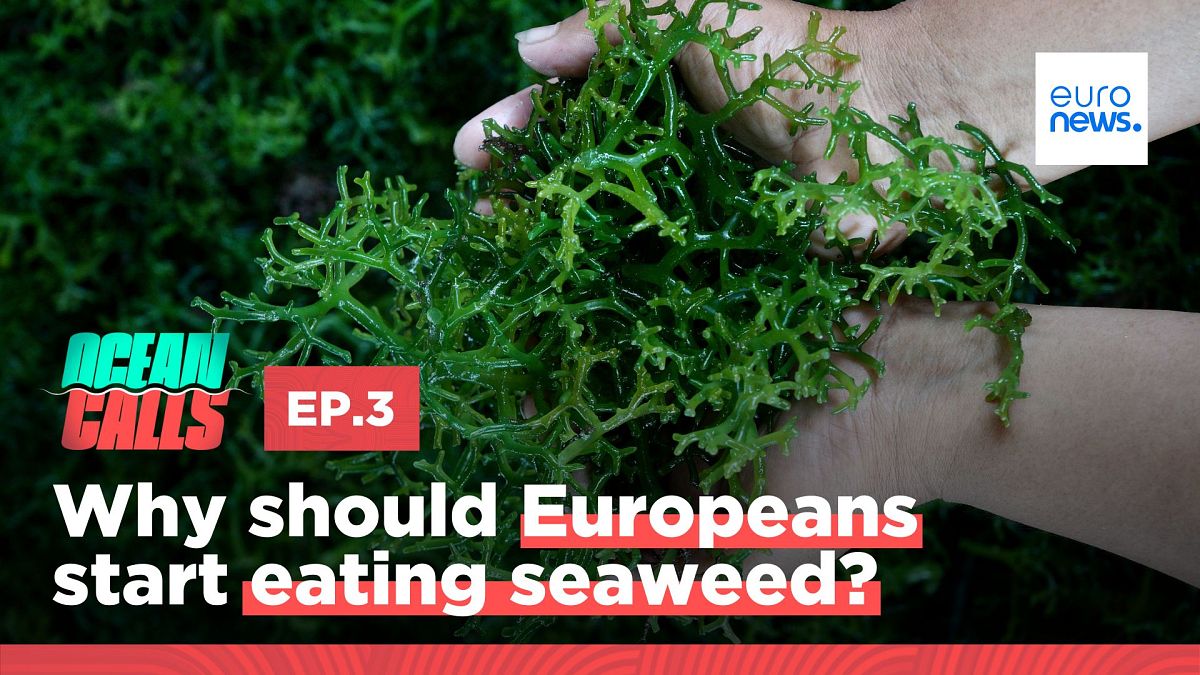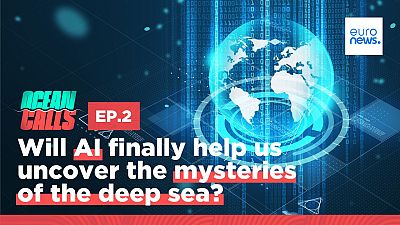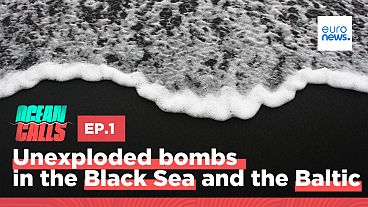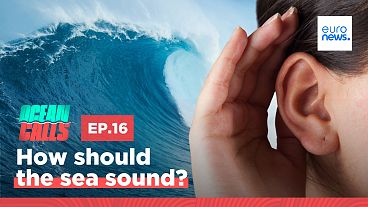In this episode of Ocean Calls, we're diving into the world of edible algae. But could seaweed be the next big thing in Europe? And can Europeans get past the initial dislike of it?
Two out of three meals per day – that’s how often Simon Johansson, CEO of Nordic Seafarm, eats seaweed. To promote this unusual ingredient, his company in Sweden provided seaweed for this year's Nobel Prize dinner.
“We grow sugar kelp and sea lettuce," he explains in this episode of Ocean Calls. "And the king of Sweden ate it, right? And he looked quite happy on TV.”
Nordic Seafarm was created by marine biologists in 2016. Their main goal was to examine the environmental impact of large-scale seaweed farming on ocean health but also create a working business model.
While many associate seaweed with the slimy stuff on the beach and the buzzkill of many seafront holidays, in 2019 the European Food Safety Authority referred to it as a ‘superfood’.
Packed with many important elements like iodine, vitamin C, and iron, it has one crucial advantage even seafood cannot beat - high levels of omega-3 fatty acids. Anne Seidler, a Marine Policy Officer at Seas At Risk, explains this phenomenon: “Omega-3 is not built by the fish themselves. They get the omega-3 by eating algae.”
European health agencies support the consumption of Omega-3 fatty acids, which are beneficial for heart health.
Seidler, who recently published a paper on how algae could be a sustainable alternative to current aquatic food systems, is convinced that we should get this supplement from algae and not fish: “Algae is eaten by wild fish. Then, caught, often in a very destructive way by bottom trawling, for example. Then, ironically, fed to another fish, which is the aquaculture fish. That then we eat to get our omega-3. So for me, it's a no-brainer, why don't we just eat the algae directly, right?”
Seidler highlights the environmental advantages of growing seaweed such as carbon dioxide absorption and minimal agricultural inputs, which makes it a sustainable crop. Algae farms also attract animal life.
“It is very good when you think about the transition that is needed towards more low-impact, small-scale fisheries,” she says.
A growing business
The global seaweed market was worth nearly €14 billion in 2021, with Asia being the largest producer. It is projected to grow to €22 billion by 2028.
Today, the EU, a minor producer on the seaweed market, is one of the biggest importers of algae products. According to the European Commission, the demand is expected to reach €9 billion in 2030. The imports include food but also cosmetics, pharmaceuticals, and biofuels.
In recent years, the European Commission has developed an action plan to boost seaweed production, aiming for growth in the industry. “The benefit of these things (seaweed farming) is that you have a low entrance level for this when it comes to costs, when it comes to knowledge,” says Seidler.
In February 2024, more than 20 species were added to the EU Novel Food Status Catalog to simplify market access for seaweed producers and save an estimated €10 million for the industry.
“We are getting good support,” admits Johansson. “But obviously we would like to see even more on the investment side.”
He says the investment is needed to scale up and compete with China and Indonesia, which produce 85% of the global supply.
“And if we are to compete with those, then we need to build up that infrastructure both in the ocean and also on land,” he adds.
On top of competition, the seaweed business is facing other problems, like appealing to consumers. Listen to the full episode to learn what some of the potential solutions could be.
At the end of the episode, you’ll hear from Eurovision star Cesar Sampson about his adventures during the competition in Portugal.
Ocean Calls is produced in partnership with the European Commission’s Directorate-General for Maritime Affairs and Fisheries.









